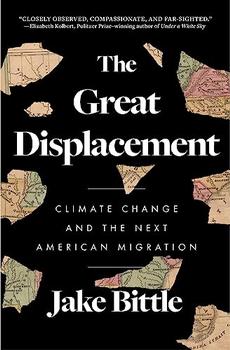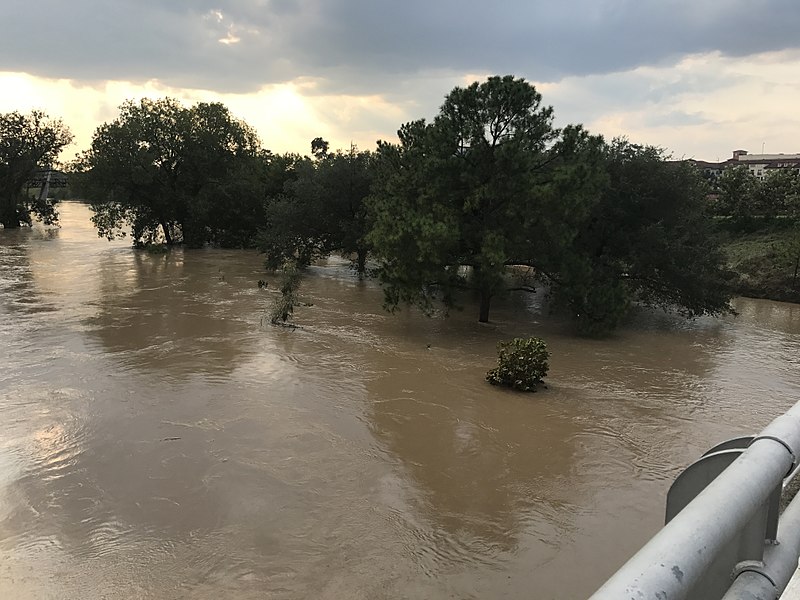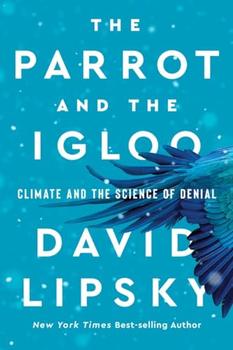Summary | Excerpt | Reviews | Beyond the book | Read-Alikes | Genres & Themes | Author Bio

Critics' Opinion:
Readers' Opinion:
First Published:
Feb 2023, 368 pages
Paperback:
Feb 2024, 368 pages
 Book Reviewed by:
Book Reviewed by:
Elisabeth Herschbach
Buy This Book
The untold story of climate migration—the personal stories of those experiencing displacement, the portraits of communities being torn apart by disaster, and the implications for all of us as we confront a changing future.
When the subject of migration that will be caused by global climate change comes up in the media or in conversation, we often think of international refugees—those from foreign countries who will emigrate to the United States to escape disasters like rising shorelines and famine. What many people don't realize though, is that climate migration is happening now—and within the borders of the United States.
A human-centered narrative with national scope, The Great Displacement is the first book to report on climate migration in the US. From half-drowned Louisiana to fire-scorched California, from the dried-up cotton fields of Arizona to the soaked watersheds of inland North Carolina, people are moving. In the last decade alone, the federal government has sponsored the relocation of tens of thousands of families away from flood zones, and tens of thousands more have moved of their own accord in the aftermath of natural disasters. Insurance and mortgage markets are already shifting to reflect mounting climate risk, pushing more people away from their homes. Rising seas have already begun to sink eastern coastal cities, while extreme heat, unprecedented drought, and unstoppable wildfires plague the west.
Over the next fifty years, millions of Americans will be caught up in this churn of displacement created by climate change, forced inland and northward in what will be the largest national migration we've yet to experience. The Great Displacement compassionately tells the stories of those who are already experiencing life on the move, while detailing just how radically climate change will transform our lives—forcing us out of the country's hardest-hit areas, uprooting countless communities, and prompting a massive migration that will fundamentally reshape the United States.
Sadly, the publisher is unable to provide an excerpt of this book.
Bittle, a staff writer for Grist who covers climate change, writes with compassion and insight about the issues at stake, clearly explaining both the science and the social policy ramifications while also forcefully portraying the human face of the crisis. By foregrounding the personal stories of people whose lives have been devastated by climate disasters, the book starkly conveys what we lose when communities are destroyed by climate change—not just homes, lives and livelihoods, but also history, culture and traditions. The book also raises pressing questions about where we choose to build, which places we choose to protect and the fundamental injustice of a social system that leaves the provision of shelter to the mercy of the market...continued
Full Review
(975 words)
This review is available to non-members for a limited time. For full access,
become a member today.
(Reviewed by Elisabeth Herschbach).
 David Wallace-Wells, New York Times bestselling author of The Uninhabitable Earth
We know what climate change will do, now, if not precisely its scale. But we don't yet see clearly just what it will do to us—our families and communities and homesteads, not mention our politics and culture. Jake Bittle's The Great Displacement is a bracing, vivid tour of the new human geography just coming into view and warning us of what's to come.
David Wallace-Wells, New York Times bestselling author of The Uninhabitable Earth
We know what climate change will do, now, if not precisely its scale. But we don't yet see clearly just what it will do to us—our families and communities and homesteads, not mention our politics and culture. Jake Bittle's The Great Displacement is a bracing, vivid tour of the new human geography just coming into view and warning us of what's to come. Eliza Griswold, Pulitzer Prize-winning author of Amity and Prosperity
Until now, the word 'displaced,' has never been strong enough to accurately conjure up what it really means: people driven from their homes, but not out of their countries, by the disruptive forces of climate-driven disasters. America already has millions of such people. We can't call them 'refugees' because they're still here in America. Jake Bittle has found a way to bring us their individual accounts to tell the larger story of a failing system—extreme weather, government error and inaction, and corporate and individual greed have come together to drive an unfolding catastrophe, which already impacts us all.
Eliza Griswold, Pulitzer Prize-winning author of Amity and Prosperity
Until now, the word 'displaced,' has never been strong enough to accurately conjure up what it really means: people driven from their homes, but not out of their countries, by the disruptive forces of climate-driven disasters. America already has millions of such people. We can't call them 'refugees' because they're still here in America. Jake Bittle has found a way to bring us their individual accounts to tell the larger story of a failing system—extreme weather, government error and inaction, and corporate and individual greed have come together to drive an unfolding catastrophe, which already impacts us all. Elizabeth Kolbert, Pulitzer-Prize winning author of Under a White Sky
Jake Bittle travels from Florida to California to see how climate change is already altering people's lives. The Great Displacement is closely observed, compassionate, and far-sighted.
Elizabeth Kolbert, Pulitzer-Prize winning author of Under a White Sky
Jake Bittle travels from Florida to California to see how climate change is already altering people's lives. The Great Displacement is closely observed, compassionate, and far-sighted. In 2017, Hurricane Harvey dumped more than 50 inches of rain on Houston, Texas. It was the biggest rainstorm in United States history and the third major storm of its kind to hit the city in as many years. Huge swathes of Houston and its surrounding suburbs were submerged. Floodwater laced with toxic runoff, sewage and debris inundated streets and sidewalks, damaging hundreds of thousands of houses and buildings. Tens of thousands of people were forced from their homes. Three years later, almost 20% of those displaced were still in temporary housing.
In 2017, Hurricane Harvey dumped more than 50 inches of rain on Houston, Texas. It was the biggest rainstorm in United States history and the third major storm of its kind to hit the city in as many years. Huge swathes of Houston and its surrounding suburbs were submerged. Floodwater laced with toxic runoff, sewage and debris inundated streets and sidewalks, damaging hundreds of thousands of houses and buildings. Tens of thousands of people were forced from their homes. Three years later, almost 20% of those displaced were still in temporary housing.
As sea levels rise and the atmosphere heats up due to climate change, extreme storms like Hurricane Harvey are becoming more frequent, causing bigger downpours, more flooding and greater...
This "beyond the book" feature is available to non-members for a limited time. Join today for full access.

If you liked The Great Displacement, try these:

by David Lipsky
Published 2024
The New York Times best-selling author explores how "anti-science" became so virulent in American life—through a history of climate denial and its consequences.

by Jessica J. Lee
Published 2024
A prize-winning memoirist and nature writer turns to the lives of plants entangled in our human world to explore belonging, displacement, identity, and the truths of our shared future





The House on Biscayne Bay
by Chanel Cleeton
As death stalks a gothic mansion in Miami, the lives of two women intertwine as the past and present collide.

The Flower Sisters
by Michelle Collins Anderson
From the new Fannie Flagg of the Ozarks, a richly-woven story of family, forgiveness, and reinvention.

The Funeral Cryer by Wenyan Lu
Debut novelist Wenyan Lu brings us this witty yet profound story about one woman's midlife reawakening in contemporary rural China.
Your guide toexceptional books
BookBrowse seeks out and recommends the best in contemporary fiction and nonfiction—books that not only engage and entertain but also deepen our understanding of ourselves and the world around us.